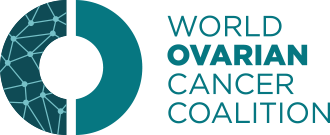An interview with Tracy Milgram-Posner, Founder of BRCAStrong
23 July 2025
Tell us about how BRCAStrong was started.
I found out I was BRCA-positive in my early twenties. I was young, otherwise healthy, and suddenly handed a reality that changed everything—my chances of developing breast or ovarian cancer were incredibly high. The doctors gave me facts, statistics, and choices. But what I didn’t get was support. No one prepared me for the emotional toll. I felt alone, confused, and overwhelmed.
I made the decision to undergo a preventative double mastectomy, which was one of the hardest and most empowering choices of my life. But even then, I struggled to find women who really understood what I was going through. I wasn’t a cancer patient, but I wasn’t untouched by it either. I was somewhere in between—a previvor—and back then, that word wasn’t even part of the conversation.
So I started BRCAStrong. It began with sharing my story, reaching out to others, and listening to theirs. It’s grown into a nonprofit that empowers women with resources, emotional support, and a true sense of community. BRCAStrong is more than an organization to me—it’s a sisterhood. It’s a way to turn pain into purpose, and fear into fuel. And it’s a reminder that none of us have to face this alone.
What are your main priorities and programs supporting those affected by ovarian cancer?
At BRCAStrong, our mission is rooted in empowering women impacted by hereditary cancers, including ovarian cancer. Whether you’re navigating a recent diagnosis, managing a BRCA or other genetic mutation, or making tough decisions about prevention, our priorities are centered around providing emotional support, education, and access to resources that help you feel seen, heard, and strong.
We promote early genetic testing, raise awareness of BRCA and related mutations, and educate on early symptoms of ovarian cancer. We also provide virtual and in-person peer support groups for women with ovarian cancer, previvors, and caregivers, and advocate for greater funding for research and stronger representation of diverse stories and bodies. Additionally, we regularly bring in voices from across the cancer community, including gynecologic oncologists, genetic counselors, nutritionists, and mental health professionals.
What are the most significant challenges facing your community when it comes to ovarian cancer?
Some of the most significant challenges are:
- Late Detection & Lack of Early Symptoms
- Limited Awareness of Genetic Risk
- Emotional Isolation
- Barriers to Preventative Care
- Underfunding of Ovarian Cancer Research
At BRCAStrong, we’re tackling these challenges head-on. But we know this work is bigger than us—it’s going to take a united effort from advocacy groups, healthcare providers, researchers, and most importantly, survivors and previvors using their voices.
Together, we’re pushing for visibility, access, and change. Because every woman deserves a chance to understand her risk, protect her health, and live her life on her own terms.
Can you share a moment, initiative, or achievement your organization is particularly proud of in your work with ovarian cancer?
One powerful moment happened during our Hereditary Cancer Awareness Month campaign, when we featured a woman in our community who had lost her sister to ovarian cancer and then made the decision to have her ovaries removed preventatively. Her story sparked hundreds of messages from women who had never even heard of BRCA mutations or realized they were at risk. That awareness led several women to get tested—and a few later told us it may have saved their lives.
We also expanded our virtual support group offerings to include dedicated spaces for ovarian cancer survivors and previvors. These aren’t just Zoom calls—they’re lifelines. Women are connecting across the country, sharing their fears and victories, and finally finding people who truly understand what they’re going through.
To see women come into those spaces feeling scared or uncertain, and leave feeling empowered and supported—that’s the real impact. That’s what we’re proud of.
At BRCAStrong, it’s never just about awareness—it’s about action, connection, and long-term emotional care. And that’s what we’ll continue to show up for.
You can learn more about BRCAStrong and their programs and events on their website: https://www.brcastrong.org/

